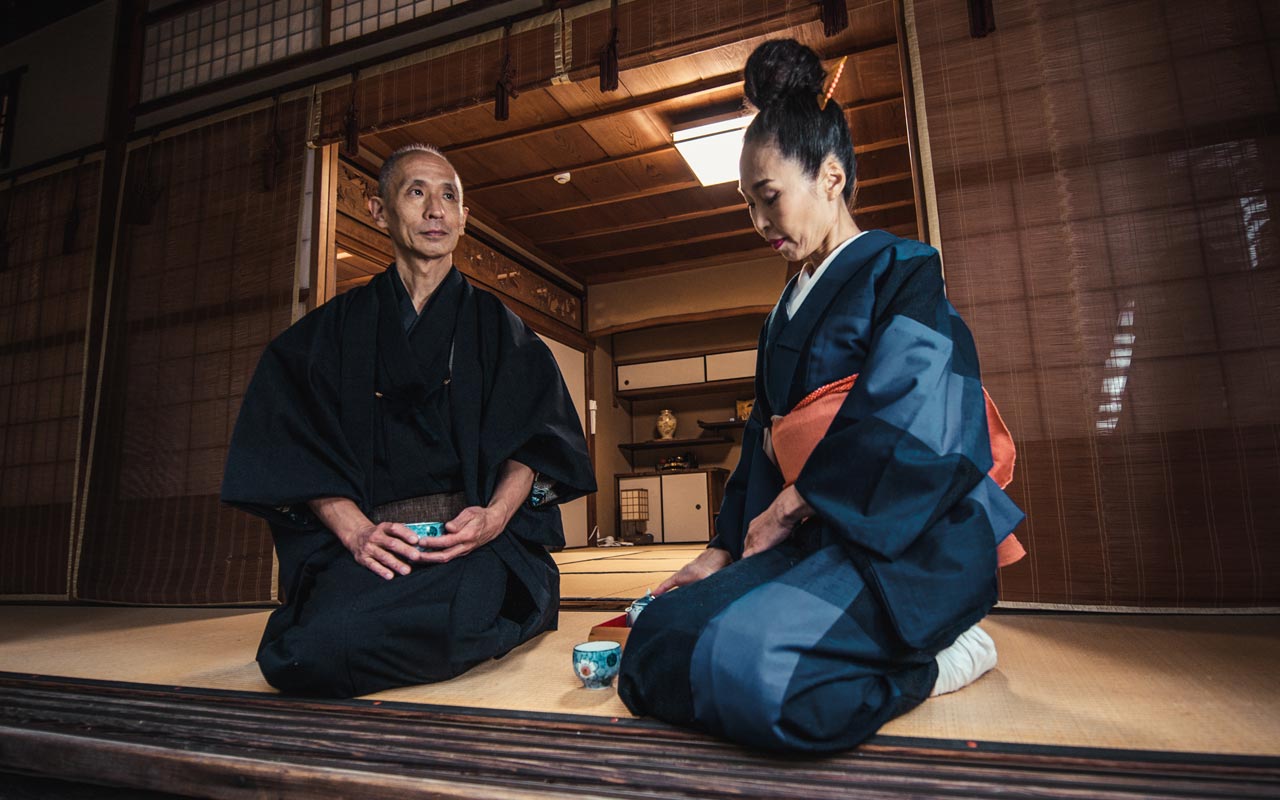15 Japanese Concepts to Enrich Your Life
Renowned for its culture, technology, and cuisine, Japan has long been a source of fascination and intrigue.
It’s not just sushi, samurai, or cherry blossoms that captivate people globally, but also its philosophical and ethical concepts. These unique ideas serve as a testament that Japanese culture is a beautiful way to experience human life.
As we journey through this article, let’s dive deep into 15 Japanese concepts that have enriched my understanding of life, relationships, and the self. I’m excited to share these pearls of wisdom, hoping they will resonate with you as they have with me.
1. Wabi-Sabi: The Beauty of Imperfection
Wabi-Sabi (侘寂) is the quintessential Japanese aesthetic that finds beauty in imperfection, transience, and the natural cycle of life. Derived from Zen Buddhism, Wabi-Sabi promotes simplicity and the acceptance of imperfections. Whether it’s a weathered wooden table, an asymmetrical hand-thrown ceramic bowl, or the fleeting beauty of cherry blossoms, Wabi-Sabi teaches us to embrace imperfection and the passage of time as inherent parts of life’s beauty.
2. Mono no Aware: The Bittersweetness of Transience
Mono no Aware (物の哀れ), often described as “the ahh-ness” of life, reflects an emotional response to the fleeting nature of beauty and experiences. From the ephemeral colors of autumn leaves to the transient joy of youth, Mono no Aware encourages us to appreciate the impermanence of all things. In recognizing the transient beauty of nature and experiences, one becomes more attuned to the emotional richness of life.
3. Yugen: Subtle and Profound Beauty
Yugen (幽玄) is a somewhat elusive concept that represents the beauty that is felt rather than seen, a beauty that defies simple explanation. Found in the profundity of art and nature, Yugen suggests that the most impactful experiences are those beyond words—like the awe-inspiring view of a mountain range or the depth of emotion felt while listening to a classical composition.
4. Omotenashi: Exemplary Hospitality
Omotenashi (おもてなし) is the Japanese philosophy of providing exceptional hospitality. More than mere manners or customer service, Omotenashi signifies a level of care and attention that anticipates guests’ needs before they express them. This could manifest as a simple but thoughtful act, like serving a cup of tea on a cold day, or a more intricate gesture, like preparing a personalized welcome package for a returning guest.
5. Mottainai: The Ethos of Sustainability
Mottainai (もったいない) is a term that encourages efficient use of resources by avoiding waste. Rooted in Buddhist philosophy, it serves as a reminder to be mindful of the value of things and not to waste anything. Whether it’s reusing materials or eating every morsel of food on a plate, Mottainai promotes responsible consumption and sustainability.
6. Magokoro: Sincerity and Authenticity
Magokoro (真心) represents sincerity, pure intentions, and a genuine heart. Whether in friendships, business, or social interactions, having Magokoro means acting with complete sincerity and integrity. It is the embodiment of one’s commitment to be wholehearted in their endeavors and relationships.
7. Ishin-denshin: Nonverbal Communication
Ishin-denshin (以心伝心) is the phenomenon where something is understood between people without the need for words. It often occurs among close friends or family members and signifies a deep, non-verbal understanding. This concept celebrates the unspoken but deeply felt connection between individuals.
8. Omoiyari: Empathy and Compassion
Omoiyari (思いやり) refers to the ability to sense others’ feelings and needs instinctively and act on them compassionately. It extends beyond empathy to actively seek ways to relieve others’ discomfort or stress. Omoiyari enhances communal harmony by encouraging consideration and kindness.
9. Kansha: Cultivating Gratitude
Kansha (感謝) is all about gratitude and appreciating life’s blessings, kindness, and experiences. Whether acknowledging someone’s efforts, being thankful for a meal, or cherishing a moment of happiness, Kansha reminds us to be grateful for life’s big and small joys.
10. Danshari: The Art of Decluttering
Danshari (断捨離) is a minimalist lifestyle concept that encourages decluttering and simplifying one’s life. The idea is to let go of physical and emotional baggage to create space for what truly matters. In removing unnecessary items or relationships, one finds clarity and a renewed sense of purpose.
11. Wa: Striving for Harmony
Wa (和) emphasizes the importance of social harmony and cooperation. This philosophy encourages individuals to work towards a balanced, peaceful environment at home, work, or society. The goal is to foster unity and minimize conflict.
12. Yasuragi: Finding Inner Peace
Yasuragi (安らぎ) represents peace, tranquility, and a sense of inner calm. It’s about finding quiet amid the chaos and challenges that life throws at us. Whether through meditation, contemplation, or simply walking in nature, Yasuragi offers a respite for the soul.
13. Kikubari: Proactive Care
Kikubari (気配り) means being attentive to others and anticipating their needs. Beyond basic consideration, it includes taking proactive steps to ensure someone else’s comfort or happiness. In doing so, one provides practical support and builds strong, meaningful connections.
14. Kiyomeru: The Act of Purification
Kiyomeru (清める) pertains to physical, mental, or emotional purification. It’s often associated with cultural or spiritual practices like purifying oneself before entering a shrine or undertaking a new endeavor. The underlying notion is that cleansing oneself creates a space for new opportunities and growth.
15. Ikigai: The Reason for Being
Ikigai (生き甲斐) combines passion, mission, vocation, and profession to find one’s “reason for being.” This concept invites us to explore a harmonious balance between what we love, what we’re good at, what the world needs, and what can sustain us financially. Rooted in a holistic worldview, Ikigai encourages a fulfilling, meaningful life.
Conclusion
These precious Japanese concepts provide invaluable insights for enhancing our human experience. Rooted in traditions that align perfectly with the principles of Zen Buddhism, they offer universally applicable wisdom that can deeply enrich our experiences, no matter our cultural or geographical origins.
These concepts serve as unique compasses to navigate the complexities of life while also helping us foster a more fulfilling and interconnected existence in harmony with Zen teachings.

